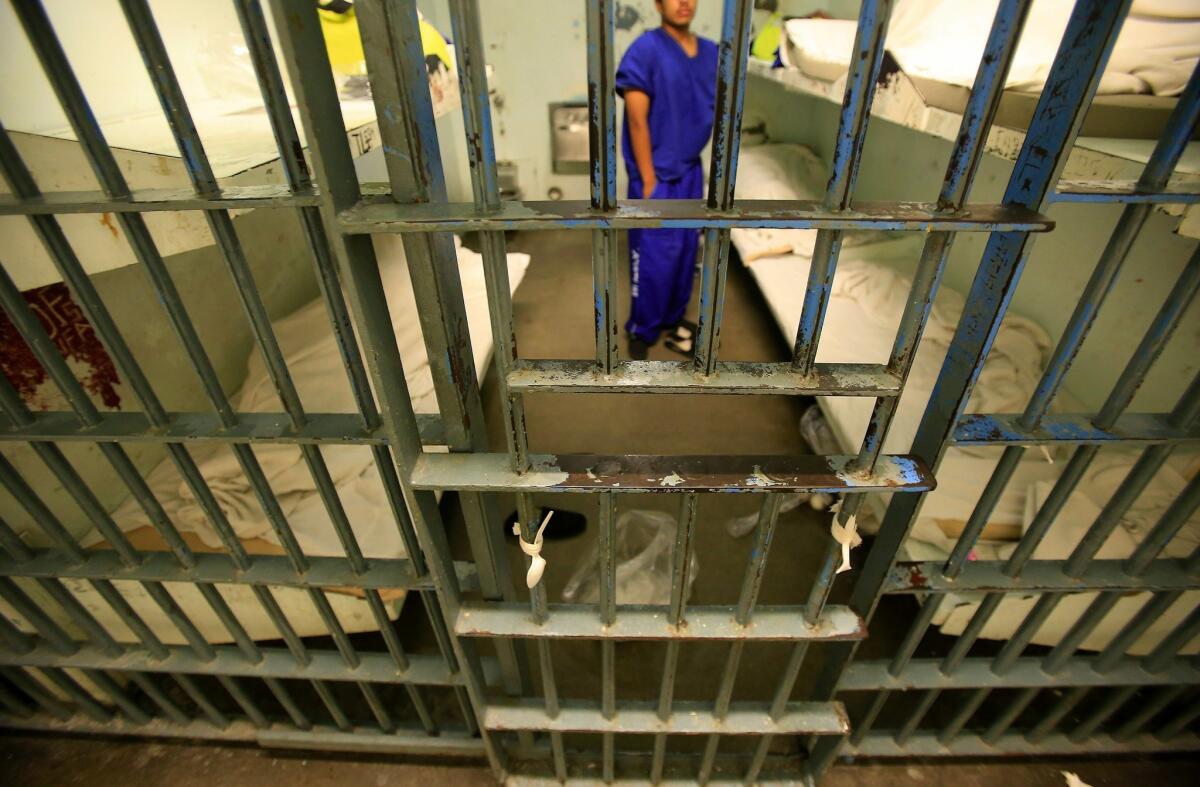Justices appear inclined to preserve plea bargains affected by Proposition 47

- Share via
The California Supreme Court appeared unwilling Wednesday to allow prosecutors to withdraw plea bargains affected by Proposition 47, which reduced some felonies to misdemeanors.
During a hearing, several justices cited a precedent that said plea bargains can’t be revoked even if a subsequent change in the law results in a different penalty.
The court is considering a Los Angeles County case in which prosecutors dropped a felony charge of robbery in exchange for a defendant’s plea of guilty to theft, which at the time was a felony. The agreement said the defendant, Morris Harris Jr., would serve six years in prison.
Voters subsequently passed Proposition 47, which reduced theft to a misdemeanor punishable by six months. The 2014 measure was retroactive.
Harris had served only half of his sentence when he applied to have his conviction reduced to a misdemeanor under Proposition 47.
Prosecutors argued they should now be able to withdraw the agreement and have Harris tried for robbery. They said they never would have made the deal if they knew theft would later become a misdemeanor.
John F. L. Pomeroy, arguing for the Los Angeles district attorney, said no one imagined that “a six-year prison term could become six months in the county jail.”
Justice Goodwin Liu appeared skeptical of the L.A. prosecutor’s arguments.
“Courts are not going to reopen these things,” Liu said.
Chief Justice Tani Cantil-Sakauye noted that Proposition 47 voters intended to curtail the powers of prosecutors in certain cases.
“Doesn’t [your argument] undermine the purpose of Proposition 47?” she asked Pomeroy.
Mark J. Harvis, who represented Harris, noted that 95% of criminal cases are resolved by plea bargains.
An estimated 750,000 cases in Los Angeles were potentially affected by the 2014 ballot measure, Harvis said. If the court allowed prosecutors to unravel previous agreements now, he added, it would mean that only 5% of defendants benefited from Proposition 47.
“It was never within the thought process of voters that plea bargains” would not be covered by the change in law, said Harvis, a deputy L.A. public defender.
Justice Carol A. Corrigan said that Proposition 47 created “enough trouble” for the courts “without resurrecting all those cases” resolved by plea bargains.
“When you engage in a plea bargain, don’t you run the risk that the law may subsequently change?” she asked.
The court will issue a decision in the case within 90 days.
More to Read
Sign up for Essential California
The most important California stories and recommendations in your inbox every morning.
You may occasionally receive promotional content from the Los Angeles Times.














